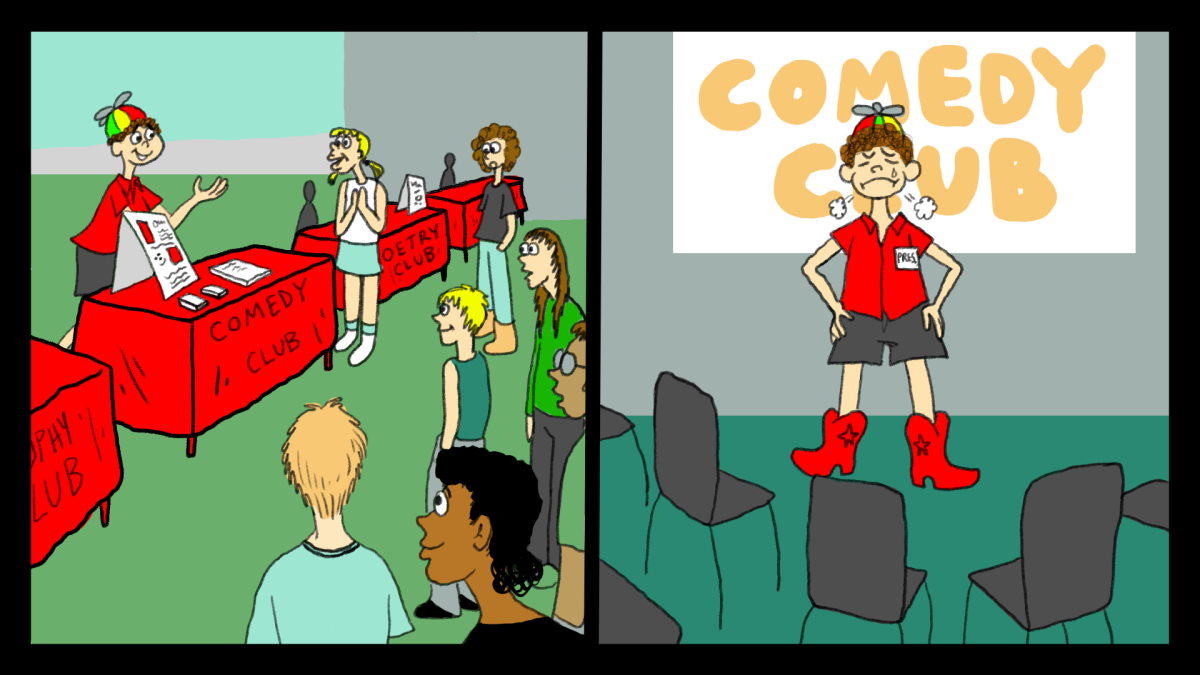I don’t think many adult queer people look to Target for representation. I believe a lot of us are willing to accept that companies love to profit off an identity in any capacity. Target cares just as much about queer people as it does about anti-queer people — it was never about looking to Target for representation, rather it was about which demographic was more profitable.
Target’s history of selling Pride merchandise can be traced back to the summer of 2010. That year, Target Corp. donated $150,000 to a group producing advertisements to support then Minnesota gubernatorial candidate Tom Emmer, who opposed gay marriage.
About a year later, Lady Gaga canceled her exclusive deal with Target to sell a special edition of her “Born This Way” album because of the company’s political spending. The featured song of the same name is explicitly a pride and general acceptance song — something relatively uncommon at the time, especially from a major artist, resulting in a massive loss for Target.
In March 2013, the Supreme Court heard United States v. Windsor, the landmark case for gay marriage prior to Obergefell v. Hodges, and released their decision protecting gay marriage that June. Notably, this was the same month Target began to sell Pride shirts.
Target announced its support for gay marriage at the end of 2013, and in the midst of North Carolina’s 2016 House Bill 2 controversy, they made a statement saying “We welcome transgender team members and guests to use the restroom or fitting room facility that corresponds with their gender identity.” In 2017, Target developed the Pride line, which would become a mainstay for the next six years.
Effectively, Target turned one of its biggest controversies into an in-store brand. As the culture surrounding gay marriage and transgender inclusion changed, Target marketed itself accordingly. And it did it for the same reason all major businesses do: to maximize profits from as many demographics as possible. It is not practical to increase revenue when groups of people don’t feel comfortable in your store. Target’s focus on profits is why its 2022 political contributions were split evenly between Democrats and Republicans.
So why the outrage now? From what I’ve seen, there has been an increase in anger over transgender individuals, particularly as it relates to minors receiving gender-affirming care, drag performances and subsequent outrage toward the idea of Pride from conservative social media. Surely this anger from some conservative individuals about the Target Pride section was always present, but I suspect social media has fanned the flames with disinformation.
A week before Pride month began, AP News debunked the claim that Target is selling tuck-friendly bathing suits to minors. Originally, this notion came from TikTok and Instagram posts that claimed the products were being marketed in the kids section. On top of general outrage toward queer and transgender people, especially youth, these claims have resulted in conservative social media outlets calling for a Target boycott.
The immediate harm this conservative sect inflicts is not only to queer and transgender individuals, but also to the workers themselves. Target wrote in a statement addressing the Pride line outrage, “Since introducing this year’s collection, we’ve experienced threats impacting our team members’ sense of safety and well-being while at work. Given these volatile circumstances, we are making adjustments to our plans, including removing items that have been at the center of the most significant confrontational behavior.” After releasing this statement, Target began moving the Pride displays from the front of the store to maintain business as per usual.
Target employees have to keep the merchandise intact and on display in the store. They must negotiate with customers when they are having an outrage and resolve the situation in a manner that keeps all of the store patrons safe and comfortable, and this puts them in the crosshairs of potentially aggressive people.
Individuals who may not be queer but just work at Target are also targeted. In the minds of these people, any association with LGBTQ+ support then makes them a participant in the indoctrination and sexualization of children. Anyone from an ally to an activist is perceived as an agent in these insane fabrications, even the innocent high schooler working their first job at the local Target.
These conservative groups and media sects claim that placing emphasis on queer representation, in any capacity, is sexualizing children. This not only feeds into the resentment queer people face, but also creates an undivertable focus on children. It creates an argument that’s almost impossible to counter because it centers children being protected, something most people would never dispute. It addresses a real concern that many parents face: children’s mental health, but points to queer people specifically instead of listening to the kids themselves.
This outrage was never about Target, it just happened to be where it took place. It was always about whether or not queerness can exist in the public. And unfortunately, Target has let a loud minority of the public remove queerness from yet another sector.







